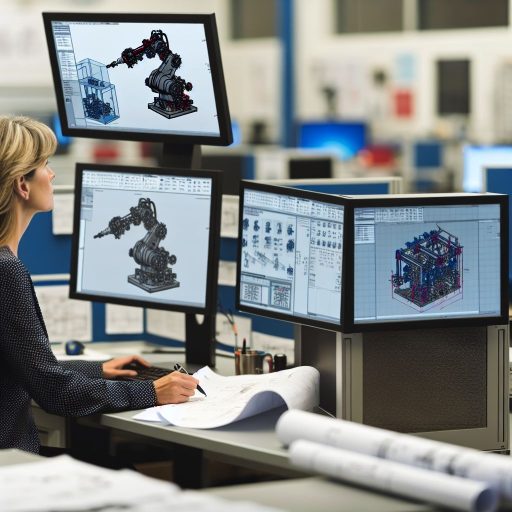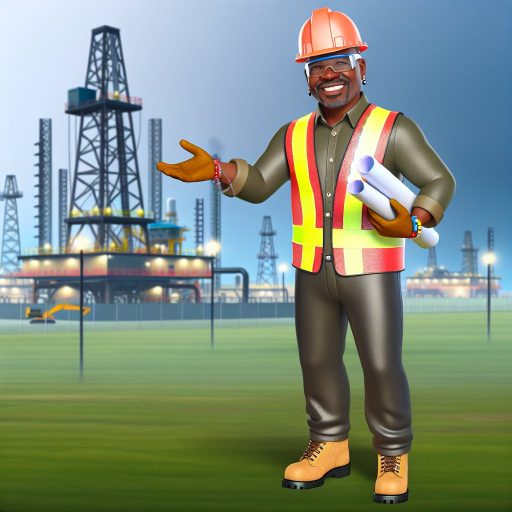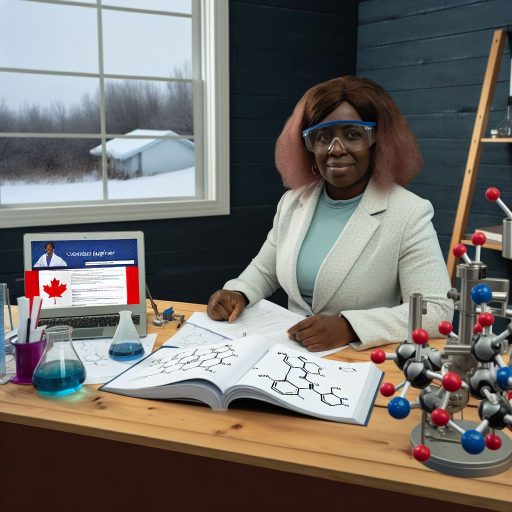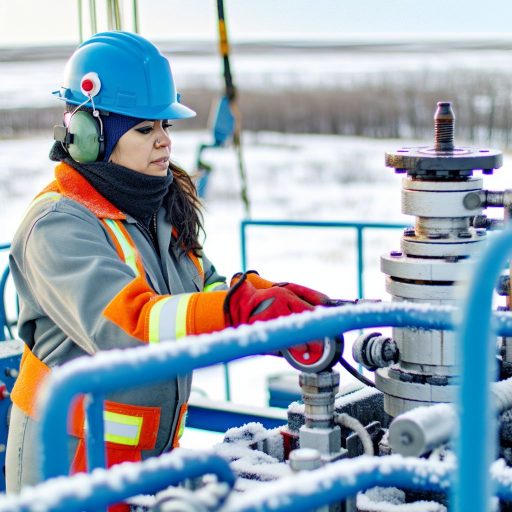Overview of Petroleum Engineering and its Relevance in the Industry
Understanding Petroleum Engineering
Petroleum engineering focuses on the exploration and production of oil and gas.
These engineers design methods to extract resources safely and efficiently.
They utilize advanced technology to analyze subsurface formations.
Additionally, they assess economic feasibility and environmental impact.
The Role of Petroleum Engineers in the Industry
Pitroleum engineers play a crucial role in energy production.
They collaborate with geologists to locate potential oil reserves.
Furthermore, they develop extraction techniques tailored to specific locations.
Often, they oversee drilling operations to ensure safety and efficiency.
Impact on Global Energy Supply
These engineers significantly contribute to the global energy supply.
By enhancing recovery techniques, they maximize resource utilization.
Consequently, they help reduce reliance on alternative energy sources.
This relevance is growing due to the increasing global energy demand.
Career Prospects and Industry Challenges
The petroleum industry offers diverse career opportunities.
Engineers can work in various environments, from offices to remote sites.
However, they face challenges such as fluctuating oil prices and regulations.
Continuous innovation is essential to remain competitive in this field.
Typical Daily Schedule of a Petroleum Engineer
Morning Routine
A petroleum engineer typically starts their day early.
They usually wake up around 6:00 AM.
The first task often involves checking emails and updates from the previous day.
Next, they prepare breakfast while reviewing the day’s schedule.
After breakfast, engineers often review project plans and goals for the day.
Commute to the Office
The commute offers valuable time for reflection and planning.
During this period, they might listen to industry-related podcasts.
Arriving at the office, they often greet colleagues and discuss ongoing projects.
Morning Work Session
The first hour often involves meetings with project managers.
Unlock Your Career Potential
Visualize a clear path to success with our tailored Career Consulting service. Personalized insights in just 1-3 days.
Get StartedEngineers discuss drilling operations and resource management strategies.
After the meetings, they shift focus toward data analysis.
This analysis is crucial for optimizing extraction processes.
Lunch Break
Lunch typically occurs around noon and lasts about one hour.
During lunch, engineers relax and socialize with colleagues.
Some may take this time to catch up on industry news or trends.
Afternoon Responsibilities
Following lunch, engineers return to technical tasks.
They may spend time on simulations and modeling software.
This work assists in planning safe and effective drilling operations.
Collaborative Projects
In the late afternoon, collaboration sessions often take place.
Engineers meet with geologists and environmental scientists.
Together, they ensure that projects meet technical and safety standards.
Wrap-Up and Planning for Tomorrow
As the day winds down, engineers review progress made during the day.
They make notes on tasks that need attention for the following day.
Before leaving the office, final emails and communications are addressed.
Evening Activities
After work, many engineers engage in personal activities.
Some prioritize fitness, while others may read or spend time with family.
Professionals in this field occasionally attend networking events.
These activities help them stay connected with industry peers.
Key Responsibilities and Duties: From Design to Field Operations
Design and Planning
Petroleum engineers initiate their work with detailed designs and plans.
They need to assess the feasibility of drilling locations thoroughly.
Moreover, they use various engineering principles to develop optimal designs.
Safety considerations are paramount during this stage of planning.
Field Operations
Once designs are approved, engineers manage field operations.
They oversee the drilling process to ensure compliance with specifications.
Foremost, they coordinate with drilling crews and equipment suppliers.
Constant monitoring of drilling progress is essential for success.
Data Analysis and Interpretation
Engineers analyze data collected during operations frequently.
This data helps determine the productivity of oil and gas wells.
They utilize sophisticated software to interpret geological information.
Consequently, adjustments to plans may be necessary based on findings.
Collaboration with Other Professionals
Petroleum engineers work closely with geologists and environmental scientists.
The collaboration ensures comprehensive analysis and decision-making.
Team meetings often focus on problem-solving strategies and solutions.
Additionally, effective communication is vital for project success.
Regulatory Compliance
Maintaining regulatory compliance is a critical duty.
Engineers ensure that all operations align with local and federal regulations.
They may also prepare reports required for regulatory submissions.
This diligence helps prevent future legal and environmental issues.
Discover More: Exploring Job Opportunities in Aerospace Engineering
Fieldwork vs. Office Work: Balancing Time Between Settings
Understanding the Role of a Petroleum Engineer
A petroleum engineer works in two main environments.
These environments include fieldwork and office work.
Fieldwork typically involves direct engagement with drilling or extraction activities.
Office work focuses on planning and analysis.
Characteristics of Fieldwork
Fieldwork takes place at drilling sites or production facilities.
Engineers like Sarah Thompson frequently travel to remote locations.
They oversee the operation of drilling rigs and monitor extraction performance.
Field engineers collect data crucial for project success.
This hands-on work allows engineers to address issues in real time.
Additionally, they collaborate with field crews to ensure safety protocols are followed.
Characteristics of Office Work
In the office, engineers analyze the data collected from the field.
They develop models to predict production rates and optimize processes.
Office work involves meetings with other engineers and stakeholders.
For example, David Rojas regularly updates management on project status.
Preparation of technical reports is also a significant aspect of office work.
Engineers rely on simulations and software to aid their analyses.
Balancing the Two Environments
Many petroleum engineers split their time between field and office work.
This balance varies by project phase and individual preferences.
In busy periods, some engineers may spend weeks on site.
Conversely, quieter times allow for extended office periods.
Successful engineers must adapt their skills to both environments.
Flexibility is key in managing unexpected challenges that arise.
Benefits of Each Setting
Fieldwork offers hands-on experience and immediate feedback.
Engineers see the results of their work firsthand.
Office work provides a conducive environment for in-depth analysis.
Engineers can collaborate with teams and refine technical strategies.
This dual exposure enhances an engineer’s professional development.
Learn More: Internship Tips for Aspiring Biomedical Engineers
Collaboration with Other Professionals
Working with Geologists
Petroleum engineers frequently collaborate with geologists to explore potential drilling sites.
Geologists provide crucial information about rock formations and subsurface conditions.
They analyze geological maps to identify oil deposits effectively.
This collaboration enhances the accuracy of drilling operations.
By combining their expertise, both professions optimize resource extraction.
Geologists conduct seismic surveys, which guide engineers in their drilling plans.
Regular communication ensures alignment on project goals and methodologies.
Additionally, they share crucial data for risk assessment and management.
Partnerships with Environmental Scientists
Environmental scientists play a vital role in evaluating the impact of oil extraction.
Petroleum engineers must consider environmental regulations during project planning.
This partnership ensures compliance with laws protecting ecosystems.
Environmental assessments help mitigate potential harm to surrounding communities.
Furthermore, they collaboratively develop sustainable practices in drilling.
Both professionals work on minimizing emissions and optimizing resource use.
Effective communication fosters trust and accountability among team members.
Consequently, they ensure that projects adhere to environmental standards.
The Importance of Interdisciplinary Teamwork
Collaboration between engineers, geologists, and environmental scientists enhances project success.
This interdisciplinary approach leads to informed decision-making.
It also promotes innovation in techniques and technologies used in the field.
Various perspectives result in solutions that might otherwise go undetected.
Ultimately, teamwork drives progress in the petroleum industry.
Delve into the Subject: Job Hunting Tips for Petroleum Engineers in Canada
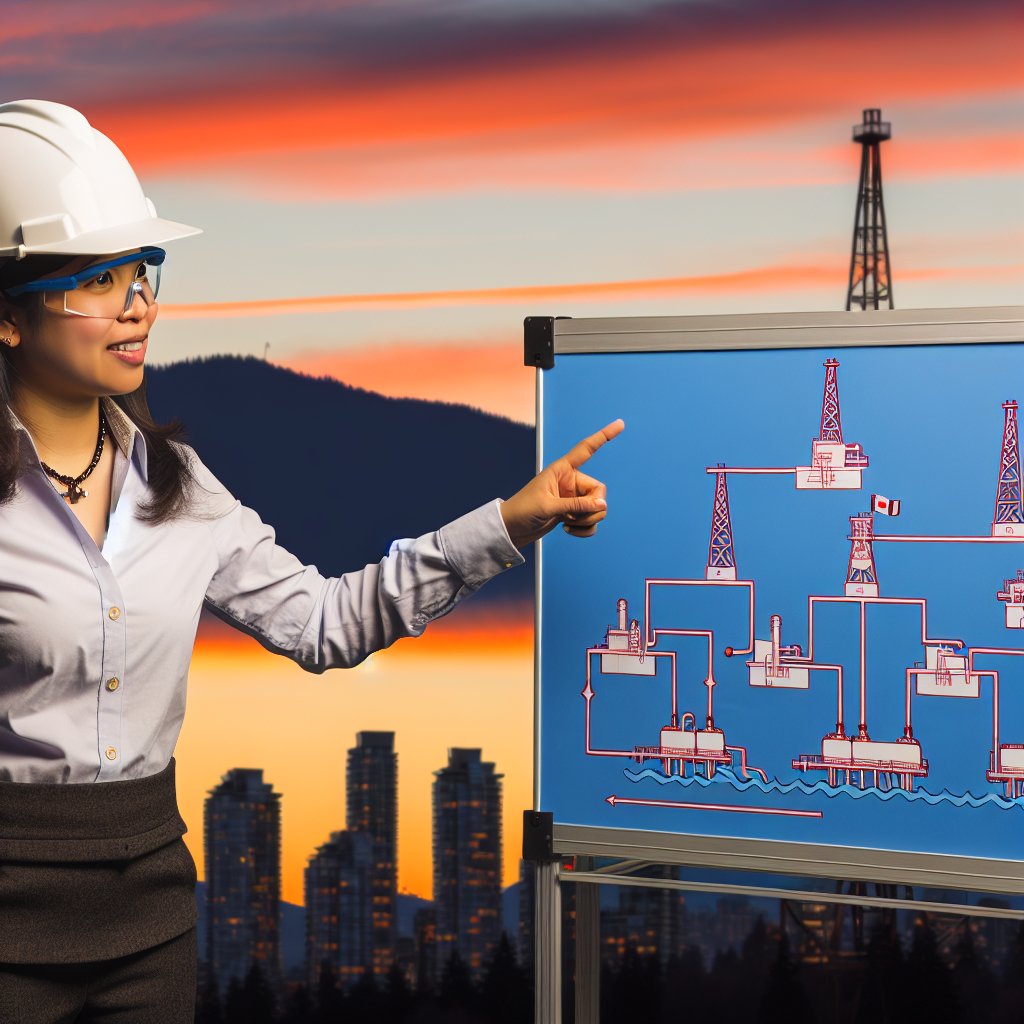
Technological Tools and Software Used by Petroleum Engineers Daily
Geological and Geophysical Software
PetroSight helps engineers analyze subsurface geological formations.
Its visualization tools enhance understanding of spatial data.
Geographix facilitates integrated mapping and data analysis.
These tools provide essential insights for exploration decisions.
Reservoir Simulation Software
Eclipse is widely used for reservoir simulation in the industry.
It predicts reservoir behavior under various production strategies.
CMG’s tools also enable detailed performance forecasting.
These simulations help optimize extraction processes.
Drilling Engineering Software
Drilling Engineering Software (DES) streamlines drilling operations.
It assists in modeling wells and optimizing drilling plans.
AutoDriller simplifies real-time monitoring of drilling parameters.
Effective planning reduces costs and enhances safety measures.
Production Management Software
ProductionMAX is vital for monitoring daily output and efficiency.
This software tracks equipment performance and maintenance schedules.
Data generated helps in making informed operational decisions.
OilPro assists in optimizing production by analyzing trends.
Data Analysis Tools
Python and R are commonly used for data analysis tasks.
Engineers utilize these programming languages for statistical analysis.
Moreover, MATLAB is advantageous for complex data modeling.
These tools enable better decision-making based on empirical data.
Project Management Software
Microsoft Project aids in managing project timelines and resources.
This tool ensures that all team members stay on track.
Asana facilitates task assignments and prioritization.
Effective project management promotes collaboration and efficiency.
See Related Content: Top Tools and Software for Chemical Engineers
Challenges Faced
Environmental Concerns
Petroleum engineers face significant environmental challenges in their work.
One primary concern is the impact of drilling activities on local ecosystems.
Engineers must mitigate potential spills and leaks to protect wildlife.
Air pollution is another issue that engineers actively manage.
They implement technologies to reduce emissions during extraction processes.
In addition, hydraulic fracturing raises concerns about water contamination.
Engineers work to ensure that groundwater remains safe and uncontaminated.
Moreover, climate change adds pressure to the industry.
Engineers are tasked with developing sustainable practices to reduce emissions.
Collaboration with environmental scientists helps ensure best practices are followed.
Safety Regulations
Safety regulations are critical to operations in the petroleum industry.
Engineers must comply with numerous local, state, and federal regulations.
These regulations aim to ensure the safety of workers and the environment.
Regular safety training sessions are mandatory for all personnel on-site.
Petroleum engineers often conduct safety audits and risk assessments.
Identifying potential hazards is essential for proactive management.
Emergency response planning is also a critical aspect of their work.
Engineers develop strategies to address various emergency scenarios.
Collaboration with safety officers ensures a comprehensive approach to safety.
Finally, staying informed about regulatory changes is vital for compliance.
Career Progression and Continuous Education
Pathways to Advancement
Petroleum engineers experience varied career paths throughout their careers.
Many begin as entry-level engineers in large corporations.
Over time, they may transition into specialized roles focusing on different aspects of the industry.
With dedication, engineers can progress into management or supervisory positions.
This journey often involves mastering new technologies and practices.
Leveraging Daily Experiences
Daily experiences significantly shape a petroleum engineer’s growth.
Working on different projects provides invaluable hands-on knowledge.
These experiences help engineers develop problem-solving skills.
They also learn to apply theoretical concepts in practical situations.
Moreover, collaborating with colleagues enhances communication abilities.
Continuous Learning Opportunities
Continuous education is crucial in the ever-evolving petroleum industry.
Engineers often participate in workshops and seminars to stay updated.
They may also enroll in online courses to further their expertise.
Professional organizations provide resources for ongoing education.
In addition, attending industry conferences fosters networking opportunities.
Certifications and Specializations
Many petroleum engineers pursue certifications to enhance their credentials.
These certifications demonstrate advanced knowledge in specific areas.
Specializations may include drilling, production, or reservoir engineering.
Such achievements can significantly impact career advancement potential.
They also reflect a commitment to the profession and personal growth.
Mentorship and Knowledge Transfer
Mentoring relationships play a vital role in professional development.
Junior engineers often seek guidance from experienced colleagues.
This relationship encourages knowledge sharing and skill enhancement.
Conversely, seasoned engineers benefit from new perspectives and ideas.
Such interactions contribute to a collaborative workplace culture.
Additional Resources
Engineers with PhD’s… How much do you make? : r/AskEngineers

